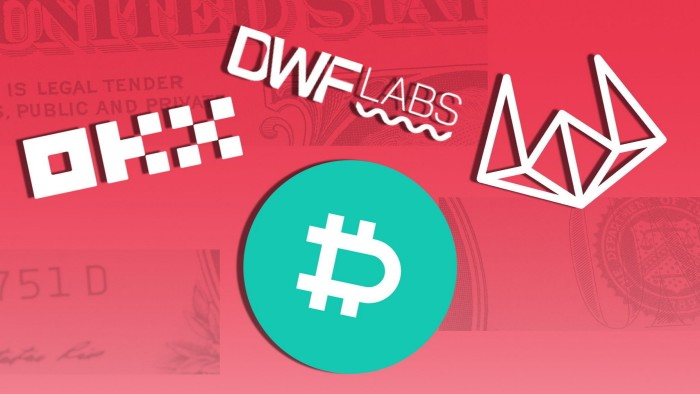Deribit, the world’s largest cryptocurrency options exchange, is looking to enter the US market, joining a host of European and Asian cryptocurrency companies that are trying to exploit President Donald Trump’s pledge to make the country the global centre for digital assets.
The Dubai-based group, which handled a notional $1.3tn of deals last year, is “actively reassessing potential opportunities” in the US, chief executive Luuk Strijers told the Financial Times, after “the recent shift towards a more favourable regulatory stance on crypto in the US”.
The potential move comes as companies such as crypto exchanges OKX of the Seychelles and Bulgaria’s Nexo, as well as Switzerland’s Wintermute and Dubai’s DWF Labs, two of the industry’s biggest market makers, plan to set up offices in the US.
Firms are looking at the world’s biggest economy in a new light following a marked change in approach to the industry in Washington under Trump.
After the collapse of crypto exchange FTX in November 2022, a concerted crackdown under the Biden administration on the industry by authorities and regulators meant some firms and customers opted to steer clear of the US.
But Trump’s active courting of the industry, and pledges to “make the US the crypto capital of the world”, appear to have made the US a much less hostile place for digital assets firms to do business.
Since the election the Securities and Exchange Commission has ended or halted more than a dozen cases it had opened against crypto companies for violating federal securities laws. Last month the Department of Justice, which had targeted companies and services it suspected of violating US rules on anti-money laundering, said it would disband its cryptocurrency enforcement unit.
Trump and his family have also pushed into cryptocurrencies, with forays into stablecoins, bitcoin mining and a memecoin.
“I think the entire market feels good about regulatory clarity,” said David Rutter, chief executive of R3, a London-based blockchain company. “The Trump memecoin was a big signal that things had changed for the US in pretty sizeable way.”
Rutter said R3 would build its business in the US, after focusing on opportunities in more regulated markets in Europe, the Middle East and Asia in recent years.

OKX will set up a US headquarters in San Jose, California and appoint a new country head, with global president Hong Fang saying the US was “a key part of OKX’s global growth strategy”.
It announced its plans less than three months after agreeing to pay $504mn to settle charges by US authorities that the exchange had handled more than $5bn worth of suspicious trades and criminal proceeds over a period of more than six years.
Nexo settled with the SEC for $45mn in 2023 for offering an unregistered asset lending product.
Binance.US, a standalone unit of the world’s largest crypto exchange, began accepting dollar based deposits and withdrawals this year after suspending the service in July 2023 on concerns from regulators. Binance’s non-US business was hit with a $4.3bn penalty in 2023, the largest fine in history for US compliance violations.
DWF will base its US operations in New York and said it had bought $25mn worth of tokens issued by World Liberty Financial, the crypto project backed by Trump and two of his sons as well as the president’s Middle East envoy and longtime business partner Steve Witkoff and two of his sons.
However, despite the more crypto-friendly environment, challenges remain for companies trying to tap the US market.
“Offering derivatives in the US remains complex,” said Deribit’s Strijers. “We are monitoring developments and evaluating strategic options accordingly.”
Derivatives dominate the global crypto trading market, with around $4.9tn of deals in March, according to CCData. The total was nearly double the $2.31tn traded on spot exchanges.
Arnab Sen, chief executive of GFO-X, a UK-based exchange, said many large institutions around the world wanted to enter the crypto market but “in a safe and structured” market, which could be provided by crypto-friendly US rules.
“Whether it’s European clients, Asian clients, Middle East clients — none of them are trying to avoid regulation,” he said. “They want to trade via that safe credit intermediated structure.”
But he added that opening an office in the US was not a guaranteed way to win business.
“Politically, what’s going on today [in the US], there’s going to be a lot of clients that want to have a non-US venue that they want to trade on,” he said.
“They’re just giving themselves an option here, that they might even set up a US-only business,” he added. “You might actually see two markets, a US and a non-US market, for many venues.

